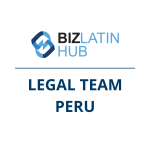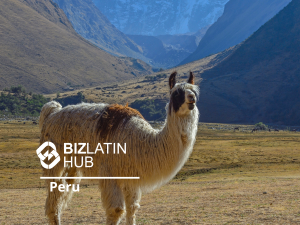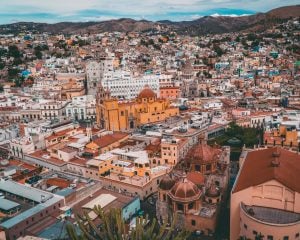Forming an NGO in Peru requires a range of legal aspects, such as the nomination of a compliance officer. NGOs in Peru must create an internal compliance system with a Compliance Officer.
This is a part of the work culture of an NGO in Peru and the organisation must enforce it. Find out about requirements for NGOs in Peru to work with a Compliance Officer.
What is the compliance system for an NGO in Peru?

A compliance system prevents corruption inside a company resulting in either direct or indirect benefit.
The characteristics of a comprehensive compliance system for an NGO in Peru are:
- The general board and general management should be the main supporters of this system.
- Its implementation must function as a system that goes through the different business units.
- A compliance must take as a basis: values, promises and commitments of the organization. In addition to that, it must be measurable in order to confirm compliance.
- It should be considered that the company’s evaluation is carried out in the future.
It is very important to put this comprehensive risk management model into effect in NGOs, since this involves identifying the most critical risks. Some organizations may apply international standards.
What does a Compliance Officer do in an NGO in Peru?
The Peruvian government established Decree Law N° 1352 of the Law N° 30424, which regulates the administrative liability of legal entities against transnational active bribery. The scope of application includes legal entities such as private law entities, associations and foundations (NGOs), among others.
The main requirement of this decree is to appoint a person to manage the compliance program within the organization. This is the Compliance Officer or “encargado de prevención”.

A Compliance Officer is a new position required by the Corporate Crime Prevention Law to meet some requirements of the Organization for Economic Cooperation and Development (OECD) to become a member country.
This is a person or work team responsible for the legal compliance of a company and improvement of the corporate culture. This involves to anticipate, detect and react to any event that damages the company’s culture and philosophy.
However, the law does not require the creation of a new position, nor does it need to be an exclusive task for a person. Everything will depend on the size of the NGO in Peru, the risks of corruption it may face, volume of business, and other factors.
What are the competent supervisors for NGOs in Peru?
In addition to the above, the Peruvian government issued Legislative Decree N° 1249, a decree that sets out measures to strengthen the prevention, detection, and penalty of money laundering and terrorism.
According to this decree, the supervisory bodies for NGOs in Peru are the:
- Peruvian Agency for International Cooperation (Agencia Peruana de Cooperación Internacional – APCI),
- Council of Foundation Oversight (Consejo de Supervigilancia de Fundaciones, or CSF), and
- Financial Intelligence Unit (FIU).
Peruvian Agency for International Cooperation (APCI)
The APCI supervises functions, corporate records, and submission of operational plans. Additionally, companies must also present their annual statements. All this information about the organisation allows evaluating the appropriate use of the resources that are registered.
Some of the NGOs are registered in the APCI’s record due to its cooperation with state institutions, resources from official foreign sources or because they request benefits from the state, according to Executive Director Jorge Voto-Bernales.
In the event of non-compliance with its obligations, the corresponding infractions will be determined and sanctioning procedures will be applied for those responsible.
Council of Foundation Oversight (CSF)
The CSF is responsible for controlling and monitoring national foundations and foreign subsidiaries in national territory, as well as verifying that they comply with the legislation and bylaws adopted.
This council must know the plans and annual budget of the foundations, so these foundations issue a copy of this information 30 days before the starting date of the financial year. In addition to that, it supervises that organisations use assets and income according to the reported purpose.
Financial Intelligence Unit (FIU)
The FIU-Peru was created under the Law N° 27693 and is responsible for receiving, analyzing and evaluating information for the detection of money laundering and/or financing of terrorism, but mainly for prevention.
The role of the FIU-Peru is supported by the reporting parties which provide information when requested, such as companies of the financial system, credit and/or debit cards companies, the stock exchange, or custom agencies. Furthermore, it is responsible for the cooperation of the supervisory bodies such as the superintendency of banking, insurance and Private Pension Fund Administrators (SBS), Peruvian Ministry of Foreign Trade and Tourism (MINCETUR), Ministry of Transport and Communications (MTC), among others.
The supervisory agencies visit to the reporting parties regularly, in order to coordinate the prevention and detection procedures of illegal activities on money laundering and financing of terrorism.
Both may review information related to the financial statements, accounting and general documentation related to the operations carried out by the company. This will allow verifying of suspicious operations.
Required profile for a Compliance Officer in Peru
According to Alexander Sedano, BDO Compliance Manager in Peru, there are some defining characteristics for this position:
- Studies: There’s no specific profession required. However, professionals with experience in managing risk prevention systems, and professionals in law and public accounting careers, specializing in auditing, are preferred.
- Experience: The professionals must have experience and deep knowledge of applicable regulations.
- Certifications: There are national associations dedicated to compliance where international associations are part of. They provide certifications for compliance officers.
- Additional programs: There are courses and diplomas that offer compliance topics. Some associations involved are ProÉtica, Asociación Peruana de Ética y Compliance, WCA Capítulo Local and the APC (Asociación Peruana de Compliance).
- Others: A compliance officer must be able to make an objective evaluation. Also, they need to receive external advice from a specialized compliance association to maintain a constant improvement of the system.
Currently, people involved in illicit activities are looking for a way to hide and give the appearance of legality to the illicitly affected assets, going against the legitimacy of the NGOs. Therefore, these decrees are issued for companies to fight against these illegal activities and be recognized for good practices.
Engage with experienced compliance officers in Peru
Peru offers the facilities and benefits necessary to start an NGO successfully. However, starting an NGO in Peru involves a wide range of legal requirements. Assigning a compliance officer to your NGO in Peru is just one of many. Next to that, NGOs in Peru can also benefit from tax exemptions, but also need to go through a specific process to do so.
Our team at Biz Latin Hub consists of experts with a vast experience in legal and accounting matters. We can help you with the process of hiring a compliance officer for your NGO in Peru in Spanish and English. Contact us here to find out how we can respond to you specific needs.
Learn more about our team of expert authors.






